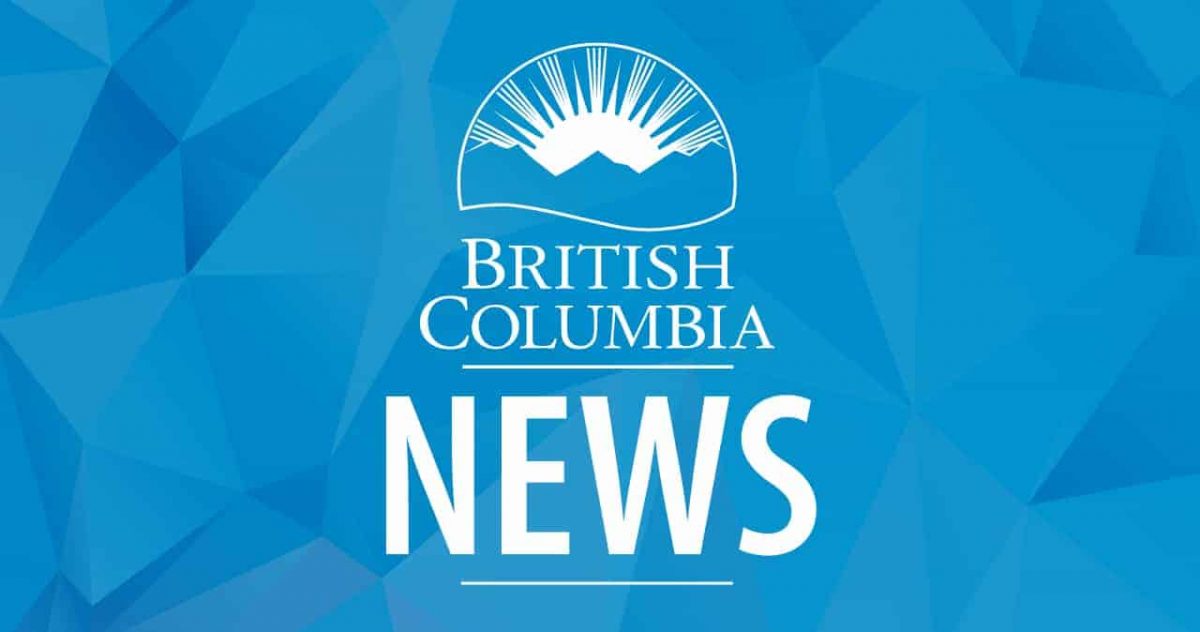
Tla’amin Nation, B.C. commit to working together to safeguard future of tiskʷat site
The Tla’amin Nation and the Province have signed a memorandum of understanding (MOU) committing to work together on a future for tiskʷat that furthers economic reconciliation and environmental stewardship in the region.
tiskʷat was once Tla’amin’s principal settlement and is now the site of a former pulp and paper mill.
“The Tla’amin people are deeply connected to this land, but they were pushed out of their village to make room for industry without having a say in the development of the site and without reaping any economic benefits,” said Premier David Eby. “Through this agreement, we are committing to righting past wrongs and working together to create environmental and economic benefits for the Tla’amin Nation, the surrounding community and the whole province. This is part of our commitment to Modern Treaty Nations to build relationships that are dynamic, evolving and improving over time.”
The signing of the MOU happened at the tiskʷat site and was witnessed by the oldest and youngest living Tla’amin members to symbolize the destructive legacy and the generational opportunity that the two governments recognize at tiskʷat.
The MOU recognizes the historical and contemporary social, cultural and economic significance of the former mill site to the Tla’amin Nation.
“This is a once-in-150-year opportunity for Tla’amin to have some level of reconciliation at tiskʷat. We need to responsibly manage the decaying infrastructure and create new opportunities so that future generations are not saddled with a toxic legacy,” said Tla’amin Hegus John Hackett. “tiskʷat is our homeland and this MOU is a powerful symbol of the province’s commitment to work differently with Tla’amin and to ensure the greatest degree of local benefit.”
Titled yixmɛtštəm tiskʷat (we are going to take care of tiskʷat), the MOU focuses on three areas of collaboration – environmental stewardship, economic development and Tla’amin’s long-term goal of site repossession. Through the MOU, the Nation and the Province will maintain a multi-ministry intergovernmental forum to address Tla’amin’s interests at tiskʷat.
“We have the opportunity to change the future for what is now a decommissioned mill site,” said Murray Rankin, Minister of Indigenous Relations and Reconciliation. “This MOU furthers reconciliation between the Province and the Tla’amin Nation by reinforcing our commitment to stand with our treaty partner and find ways to ensure that Tla’amin’s interests for the site have the best chance possible, which will benefit not just the Tla’amin Nation, but also the entire region.”
Tla’amin has conducted significant due diligence regarding environmental liabilities, site management requirements and economic opportunities at the site. It also has an active specific claim filed with Canada on the tiskʷat site.
Quotes:
Gary Anandasangaree, federal Minister of Crown-Indigenous Relations –
“145 years after Tla’amin was displaced from its original village site, we have an opportunity to right this wrong. Canada recognizes the harms caused to the Tla’amin First Nation and we’re committed to working together around the negotiation table. This is a significant step towards renewing our relationship with Tla’amin First Nation. More to do.”
Nicholas Simons, MLA for MLA for Powell River-Sunshine Coast –
“Today is about celebrating the signing of the MOU, which represents a very positive step for the Tla’amin Nation, for our community and for our entire region. This historic event celebrates our commitment to economic and social reconciliation. This is an important milestone for the tiskʷat site.”
Quick Facts:
- The Tla’amin Nation is a self-governing Modern Treaty Nation with significant land holdings in the qathet region on the Sunshine Coast.
- The Tla’amin Treaty with Canada and British Columbia came into force in 2016.
- The Tla’amin people have occupied the region for millennia, stewarding the land and sea in accordance with Tla’amin law and respect for the natural world.
- tiskʷat (pronounced Tees-kwat) means big river.
Learn More:
Read the memorandum of understanding here:
https://www2.gov.bc.ca/gov/content/environment/natural-resource-stewardship/consulting-with-first-nations/first-nations-negotiations/first-nations-a-z-listing/tla-amin-nation-sliammon-first-nation
To learn more about the Tla’amin Nation, please visit: https://www.tlaaminnation.com/
A backgrounder follows.
